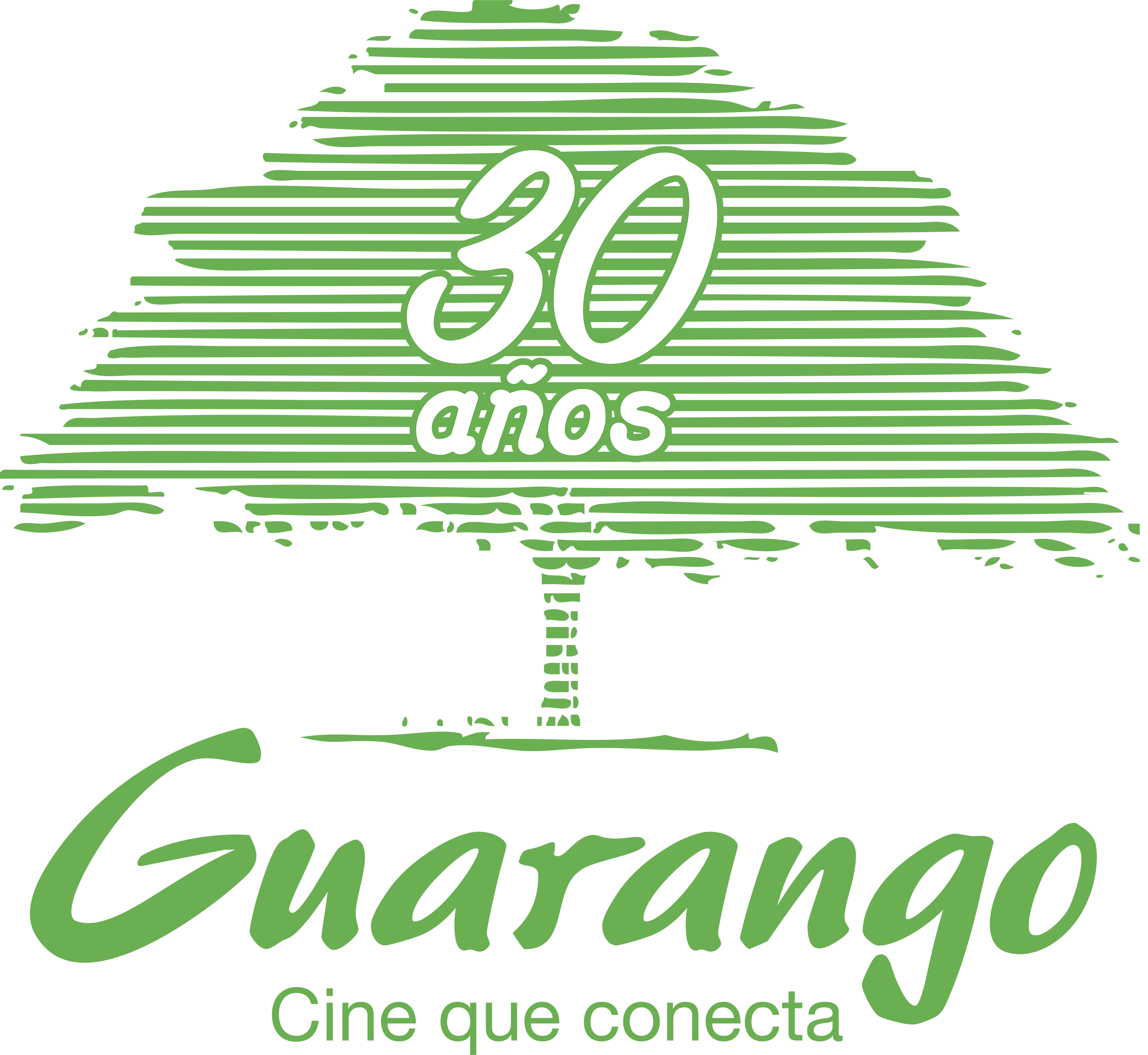
A film by Wilton Martinez
An encounter between two people whose lives, from opposite sides, were impacted by the “rubber boom” of the early 20th century. Amazonian artist Brus Rubio seeks to reimagine his ancestral culture in the community of Pucaurquillo, an indigenous diaspora of survivors of the rubber genocide. Sheila de Loayza, granddaughter of one of the bosses of the rubber baron, Julio C. Arana, tries to find meaning in her painful experience caused by the silencing of her grandfather's crimes. Both try out paths towards a possible reconciliation and healing.

Shiringa seeks to inform and educate audiences about a disturbing chapter of national, regional, and global history that has been largely ignored and erased from the collective imagination; to recognize its traumatic legacy among indigenous peoples who have nevertheless resisted and continue to affirm their culture, and; to explore ways of reconciling opposing views and healing historical wounds.
.png)



.png)
.png)
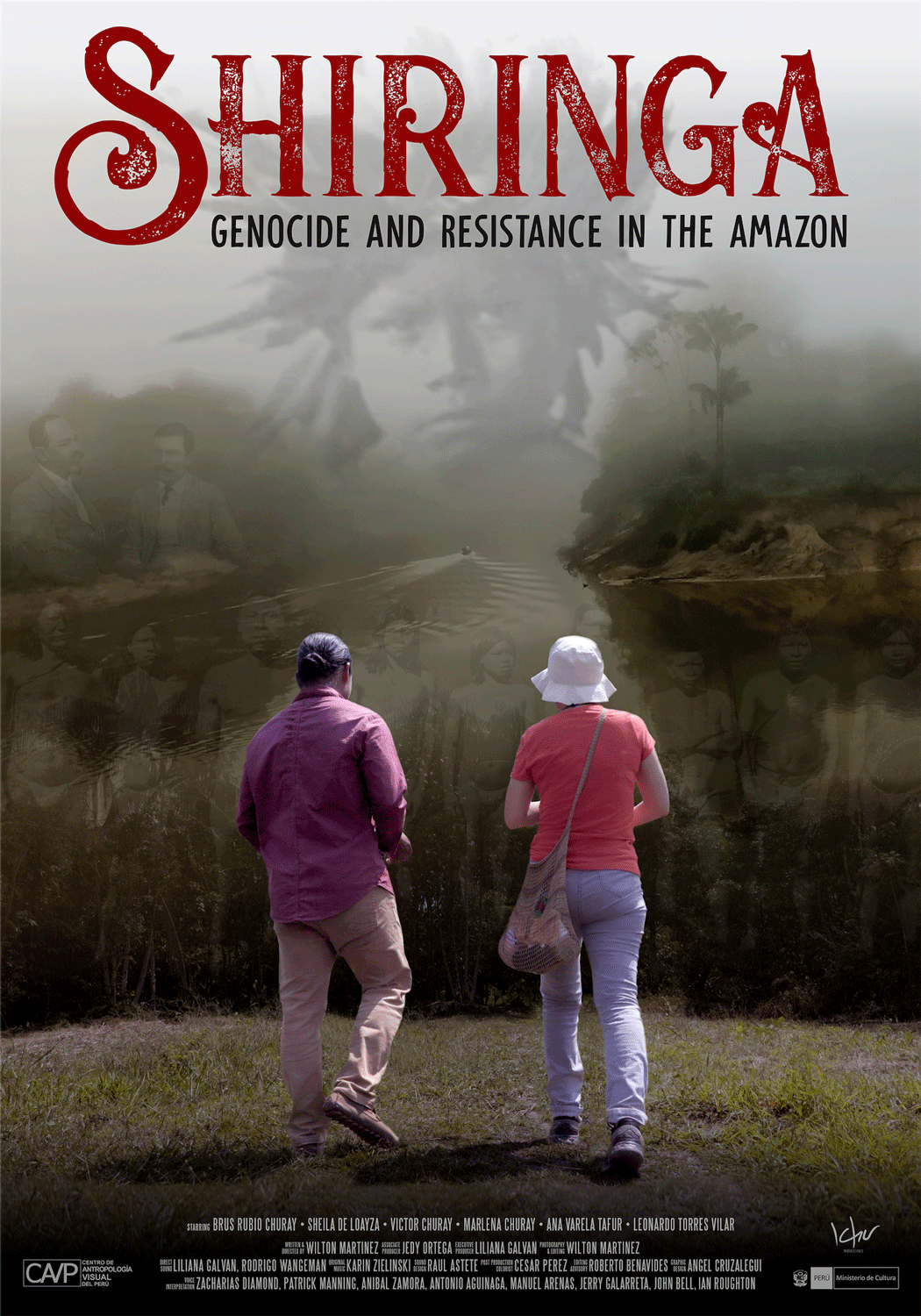



Conceived as a video essay, Shiringa combines various narrative genres and film styles:
cinéma-verité, focused on Brus Rubio and Sheila de Loayza with their respective families and communities;
dramatized historiography of the events, narrated in the actual words of its principal historical actors, and;
impressionistic dramatization of the forest as witness and victim of the Putumayo genocide.
Official trailer
Brus Rubio

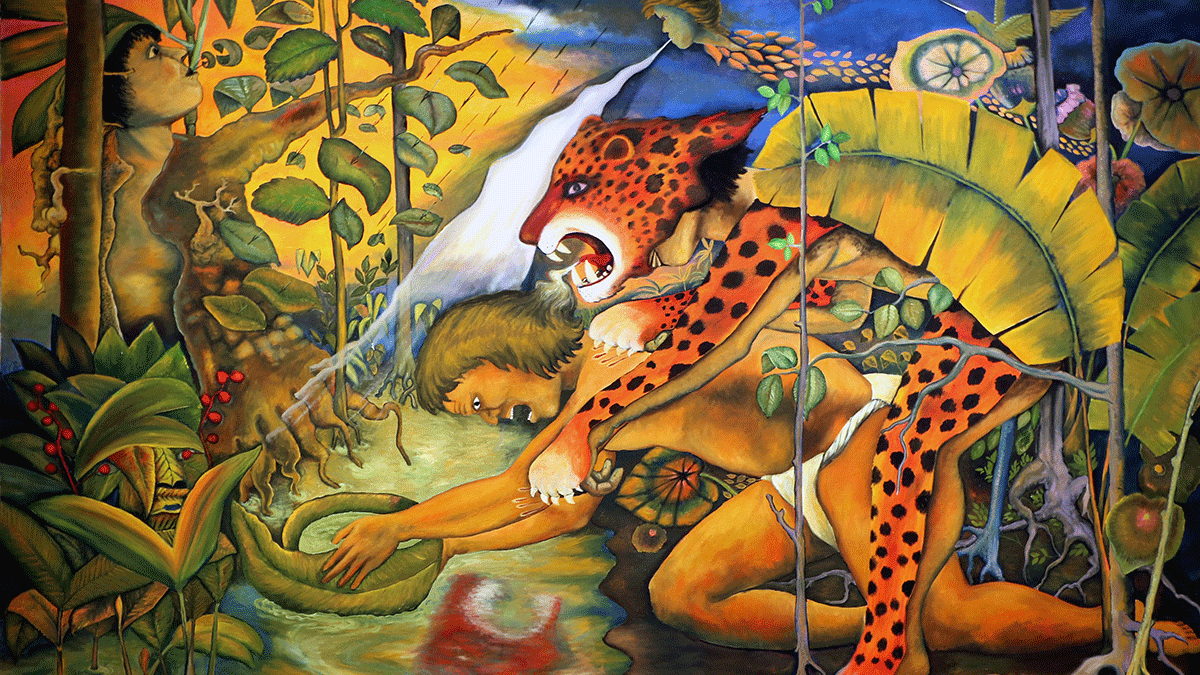
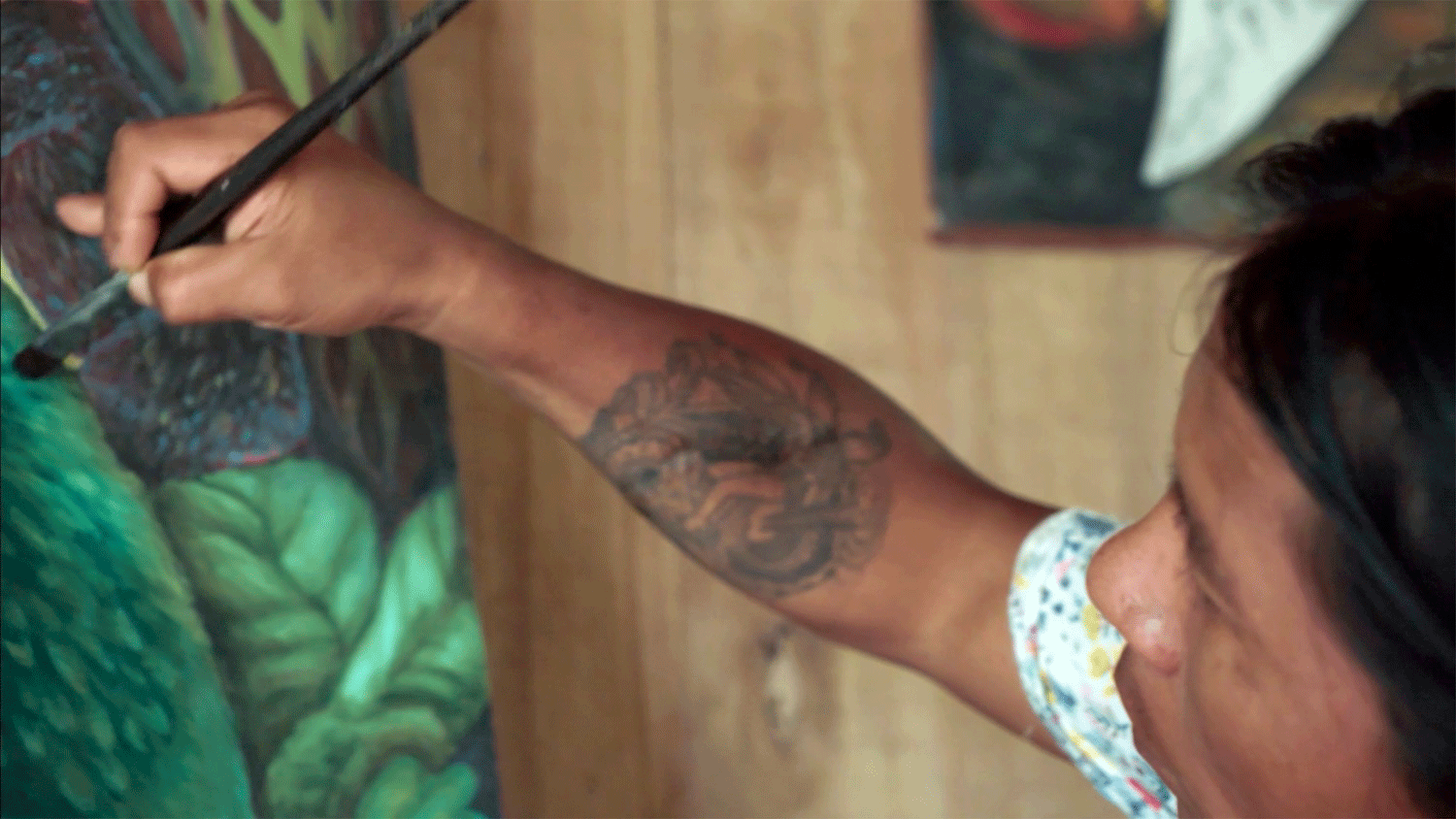
After several years in Lima, Brus returns to his Bora and Murui community in Pucaurquillo, to build his house-workshop, Monilla Ámena, and continue his artistic and cultural work as a leader and active member of the community. We learn about his vision through his testimony, his paintings, his cultural impact and the art workshops he offers to the children of Pucaurquillo.
Sheila de Loayza



Sheila de Loayza is the granddaughter of Miguel Loayza—Julio C. Arana's right-hand man and the founder of Pucaurquillo—and Luzmila Lemos, an indigenous Murui woman with whom Loayza lived and had ten children. Sheila shares her family experience of silencing her grandfather's crimes as well as her search for reconciliation and healing.
Ana Varela Tafur

Shiringa is narrated by Ana Varela, famed writer and poet from Iquitos, descendant of the Murui People and winner of the 2023 Peru National literature Prize for Poetry, for her book "Estancias de Emilia Tangoa".

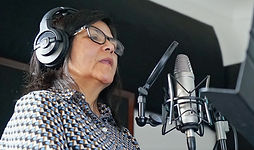
Leonardo Torres Vilar

Also featured is renowned Peruvian actor, Leonardo Torres, as Don Jesús, a character inspired in rubber baron Julio C. Arana in a escene from "Savia", theater play by Luis Alberto León directed by Chela de Ferrari, of Teatro La Plaza.

Julio C. Arana



Julio C. Arana took over more than a million hectares of land in the Putumayo region and enslaved tens of thousands of indigenous people to exploit them for the extraction of wild rubber. Presenting himself as a "patriot" and a "civilizer," he was responsible, along with Miguel Loayza and other chiefs, for the torture and murder of more than 30,000 men, women, children and elderly.

A production by



